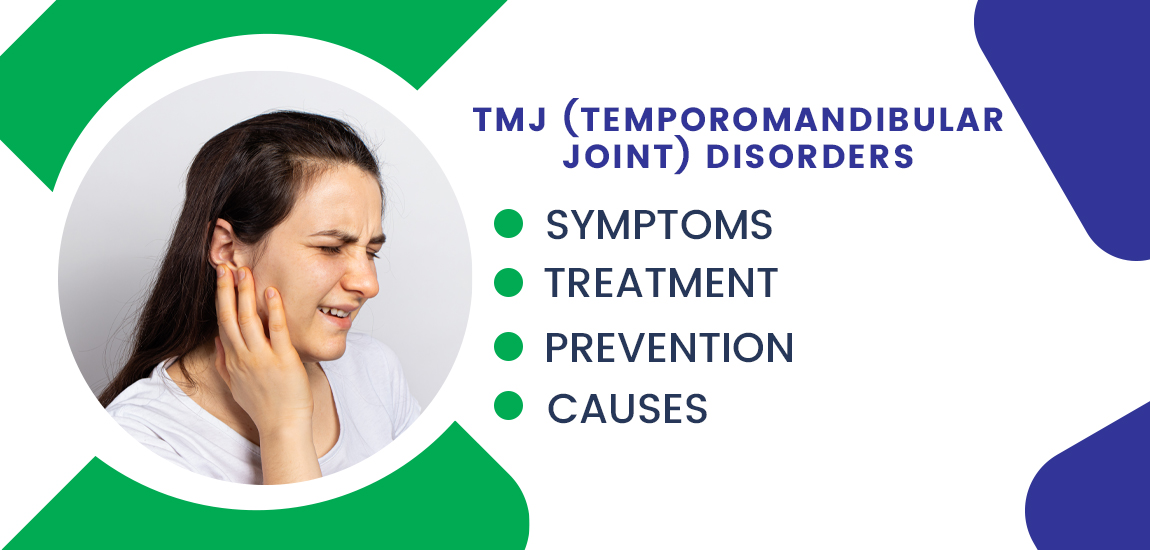
- By JRSH Admin
- In Health and Tips,
- Posted November 16, 2023
Caregiver: Symptoms, Causes, Diagnosis, Treatment and Prevention
A condition of physical, emotional, and mental exhaustion that arises when you are caring for another person is known as caregiver burnout. Depression, anxiety, and exhaustion are common symptoms of stressed caregivers.
Engaging in support groups, getting in touch with a mental health professional, or taking part in respite care can all help lower your risk of burnout.
Who is the Caregiver?
A caregiver is someone who provides care and support to another person who may require assistance due to age, illness, disability, or other circumstances. Caregivers can be family members, friends, or hired professionals, and their responsibilities can vary widely depending on the needs of the person they are caring for.
Caregiving can involve tasks such as helping with daily activities like bathing, dressing, and meal preparation, providing emotional support, administering medication, and managing medical appointments.
Caregivers play a crucial role in the well-being of those they care for, and their work can be both rewarding and challenging.
Also read: Arm Pain: Symptoms, Causes, Diagnosis, Prevention and Treatments
Symptoms of Caregiver:
Caregiver stress or burnout can manifest in various symptoms, including:
- Fatigue and sleep problems.
- Anxiety and depression.
- Irritability and mood swings.
- Physical ailments like headaches and digestive issues.
- Social withdrawal and isolation.
- Neglecting personal needs and health.
- Decreased ability to concentrate.
- Increased use of alcohol or medication.
- Feelings of resentment or hopelessness.
- A sense of being overwhelmed by caregiving responsibilities.
Causes of Caregiver:
The causes of caregiving can vary, but some common reasons why individuals become caregivers include:
- Family responsibilities: Many people become caregivers to provide support to family members who are aging, ill, or disabled. This could include caring for parents, spouses, or children with special needs.
- Health issues: Some caregivers take on the role due to their loved one's health issues, such as a chronic illness, disability, or terminal condition, that requires ongoing care and assistance.
- Aging population: As the population ages, there is an increasing demand for caregivers to assist older adults who may require help with daily activities, medical care, and companionship.
- Choice of profession: Some individuals choose to become professional caregivers or work in healthcare settings because they have a passion for helping others and providing care to those in need.
- Cultural or societal expectations: In some cultures and societies, caregiving for family members is a traditional and expected role for certain family members, such as adult children taking care of aging parents.
- Financial considerations: Providing caregiving can be a cost-effective alternative to placing a loved one in a long-term care facility, especially if family members are willing and able to provide care.
- Compassion and empathy: Many caregivers are motivated by a strong sense of compassion and empathy, wanting to improve the quality of life for those in their care.
- Friendship and support: Friends may become caregivers to assist a friend in times of need, such as when a friend is recovering from surgery or going through a difficult period.
Also read: Atrial Fibrillation: Symptoms, Causes, Prevention, and Treatment
Diagnosis of Caregiver:
Diagnosing caregiver burnout typically involves a healthcare professional, such as a doctor or mental health provider, assessing the caregiver's physical, emotional, and psychological well-being. While there is no specific medical test to diagnose caregiver burnout, healthcare providers use various methods to evaluate a caregiver's condition. Some common approaches include:
- Clinical Assessment: Healthcare professionals may conduct interviews and ask questions to assess the caregiver's mental and emotional state. They will inquire about the caregiver's experiences, responsibilities, and the impact of caregiving on their life.
- Questionnaires and Surveys: Caregiver-specific questionnaires or surveys, like the Zarit Burden Interview or the Caregiver Strain Index, can help assess caregiver stress, burden, and burnout. Caregivers can self-administer these assessments or answer questions with the help of a healthcare provider.
- Physical Health Assessment: Caregiver burnout can lead to physical health problems. Healthcare providers may perform physical exams and evaluate the caregiver's overall health to identify any related issues.
- Psychological Evaluation: Mental health professionals may conduct psychological assessments to evaluate symptoms of depression, anxiety, or other mental health conditions that can be associated with caregiver burnout.
- Observation: Healthcare providers may observe the caregiver's behavior and interactions to assess signs of exhaustion, frustration, or emotional distress.
Treatment of Caregiver:
The treatment or support for caregivers typically focuses on addressing the emotional, physical, and practical challenges they face while providing care for a loved one. Caregivers can experience stress and burnout, so it's essential to consider various strategies and resources to help them manage their responsibilities and maintain their well-being. Here are some common forms of treatment and support for caregivers:
- Respite care: Respite care gives caregivers short-term relief to relax and refuel. This can involve hiring a professional caregiver, enlisting the help of family and friends, or utilizing adult daycare services to provide short-term care for the loved one.
- Support groups: Caregiver support groups offer a safe and understanding environment where caregivers can share their experiences, receive emotional support, and learn from others facing similar challenges. There are numerous online and in-person support groups available.
- Counseling or therapy: Caregivers may benefit from counseling or therapy to address the emotional and psychological stress associated with caregiving. This can help them develop coping strategies and manage their feelings of stress, anxiety, and depression.
- Education and training: Caregivers can benefit from educational programs that teach them about the specific condition or illness their loved one is facing. This knowledge can help them provide better care and reduce feelings of helplessness.
- Financial assistance: Caregivers may need assistance in managing the financial aspects of caregiving, including accessing government programs, insurance, or financial planning to support their caregiving responsibilities.
- Time management and self-care: Caregivers should learn effective time management skills to balance their caregiving duties with self-care. Self-care involves taking time for one's physical and emotional well-being, including exercise, relaxation, and leisure activities.
- Home modifications and adaptive equipment: In some cases, caregivers may need assistance in making the home environment more accessible and safe for their loved ones. This can include installing ramps, grab bars, or other adaptive equipment.
- Legal and financial planning: Caregivers may benefit from consulting with an attorney or financial advisor to address legal and financial issues related to caregiving, such as powers of attorney, wills, and long-term care planning.
- Healthcare support: Caregivers can work closely with healthcare professionals to manage their loved one's medical needs, including medication management, coordinating medical appointments, and ensuring they receive appropriate healthcare.
- Community resources: Caregivers should explore local and community resources that can provide assistance and services, such as meal delivery programs, transportation services, and home healthcare agencies.
Prevention of Caregiver:
Caregiving is often a necessary and noble role, but it can be physically and emotionally demanding. While it's not possible to prevent caregiving in situations where a loved one needs assistance, there are steps that potential caregivers can take to plan and manage their caregiving responsibilities to reduce the risk of caregiver burnout and stress:
- Advance Planning: If you anticipate becoming a caregiver for an aging parent or loved one, engage in planning. This can involve discussing their preferences, healthcare directives, and legal matters (e.g., power of attorney) while they are still capable of making decisions.
- Ask for Help: Refrain from attempting to handle things alone. Seek assistance from additional family members, acquaintances, or trained caregivers when required. It is possible to reduce workload and avoid burnout by sharing responsibilities.
- Set Boundaries: It's essential to establish clear boundaries and understand your limits. Refrain from overcommitting yourself by not taking on too many tasks. Communicate your boundaries with other family members and your loved ones.
- Self-Care: Prioritize self-care. This includes getting enough rest, eating well, staying physically active, and finding time for activities that you enjoy. Caring for your own physical and mental health is crucial.
- Time Management: Use effective time management strategies to organize your caregiving tasks. This can help you balance your caregiving responsibilities with other aspects of your life.
- Access Resources: Learn about and access resources available to caregivers, such as support groups, respite care services, and government assistance programs.
- Education: If you are new to caregiving, educate yourself about the specific condition or illness your loved one is facing. Understanding their needs and knowing where to find information and support can reduce stress.
- Legal and Financial Planning: Make advance plans regarding power of attorney, wills, and long-term care insurance. Seeking advice from a financial advisor or lawyer may be beneficial.
- Communication: Keep contact with your loved one honest and open. Understand their wishes and preferences, and encourage them to express their needs and concerns.
- Stress Management: Learn stress management techniques, such as mindfulness, meditation, or relaxation exercises, to help cope with the emotional challenges of caregiving.
- Ask for Help: Don't be afraid to ask for help from professionals, such as therapists or counselors, if you're feeling overwhelmed, anxious, or depressed.
- Respite Care: Use respite care services to take breaks and recharge when needed. This can prevent burnout and provide you with valuable time for self-care.
Tags
Blog Search
Latest Posts
-
Mild Heart Attack: How Serious Is It?
February 19, 2026 -
Skin Ulcers Uncovered: Causes, Types, Symptoms, and Healing Options
January 13, 2026 -
Is Coconut Water Safe During Pregnancy? Benefits, Risks & Myths
January 08, 2026 -
Dark Circles Under The Eyes: Causes, Home Remedies and Treatments
December 21, 2025 -
बर्ड फ्लू के लक्षण, कारण, उपचार और बचाव के उपाय जानें
December 04, 2025




